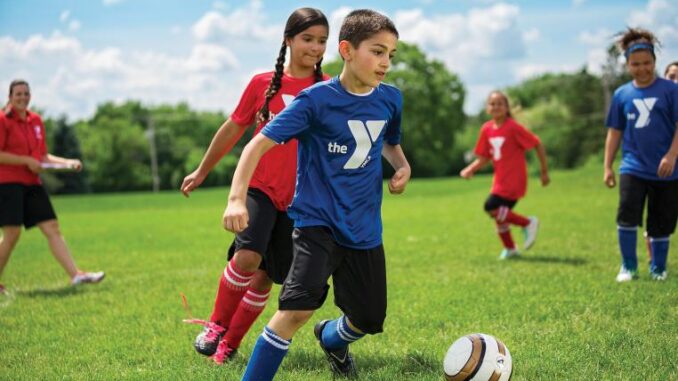
With its estimated global following of over four billion fans, soccer is, hands down, the most popular sport in the world. However, in the USA, this sport does not evoke the same enthusiasm level as elsewhere- at least for now.
But wait- recent reports and statistics show that this sport is rapidly gaining traction and may become more mainstream with generation Alpha (the demographic cohort born between 2010 and 2025) and beyond.
A survey by Morning Consult gauging what parents say about their kids’ participation in different sports has some interesting findings. For example, the report shows that the number of parents who have been participating in soccer has been growing with each generation.
Another crucial finding was that parents who watched or played soccer are more likely to have an alpha who enjoys or participates in the sport. Interestingly, the percentage of parents with alpha kids who played organized or recreational soccer was higher than other sports, including football and basketball.
These findings are in sync with data from Statista, which show that the number of US high schoolers participating in the sport reached an all-time high in 2019 at over 850k teenagers. Not to mention, US Youth Soccer says that there are over three million registered youth soccer players in the country- a number that’s expected to rise exponentially in the coming years.
Is Soccer the Future for US Youths?
Soccer is the third most popular sport in the US as of 2021. And while it won’t unseat football and basketball from their positions any time soon, there’s no doubt that soccer participation in the US is on the rise.
A new report by the Hospital for Special Surgery (HSS) shows most parents enroll their children in games for the following reasons:
- Child’s interest
- To increase the child’s physical activity level
- Because the parents participated in the sports during their young age
Like other sports, college sponsorship deals are another reason parents encourage their kids to join organized sports.
When it comes down to it, soccer is comparably more inclusive than football and basketball. Kids of all physical frames can comfortably participate in soccer without being held back by their stature.
Also, we can’t ignore the level of support that soccer gets both globally and domestically. In the US, Major League Soccer (MLS) takes the credit for the increased popularity of this beautiful game. This league started in 1996 with ten teams. One decade down the line, it has grown to 27 teams, and there are plans to expand it to 29 teams by 2023.
To this point, it’s safe to say Yes! Soccer is the future for US sports lovers- and now is the best time to get your kids into the game. On that note, let’s talk about how you can get your kids to play soccer without a lot of resistance.
How to Get Kids Hooked on Soccer
Play Soccer Together
What do CR7 and Tiger Woods have in common? You’re right- both are sports legendaries in their respective niches. There’s something else, though- the two are regularly seen training their kids to become good at what they (parents) do.
It makes sense. Children are the best copycats and quickly pick up what you do most. Their imitation is an inborn skill that helps them become independent as they grow up. But this ability can also be leveraged to hone their talents and teach them new skills.
When it comes to sports, you don’t need to be good at the game to introduce your child to it. In the case of soccer, you only need to identify creative soccer drills for kids that both of you can participate in. Playing soccer with your kids is an excellent time to teach them fundamental skills while strengthening the family bond.
Gift Them Soccer Related Items
Once you’ve established that your child is an upcoming soccer star, the next step is to integrate the game into their lives. Among other ways of doing this is by surrounding them with soccer-related items. This can be anything from soccer-themed cups and throw blankets to jerseys, shorts and mini goalposts.
Send Your Kids to Summer Camps
You should consider enrolling your young players for summer camps when they are five to twelve years old. Sports summer camps are a great place to soak up new soccer strategies from professional coaches and learn how to avoid common sports injuries. Camp coaches also have the experience to pinpoint each player’s weak areas and suggest appropriate drills to resolve them.
But more than just a training center, summer camps- local and abroad- are the ultimate memory-making experience. They are an adventure for curious kids and offer a great place to make new friends, embrace other cultures, and even pick up a new language.
Watch Soccer Games Together
It’s not a secret that playing soccer regularly makes you a better player. But as most players will tell you, watching matches- either live or recorded- is yet another valuable way of getting better at the game.
One obvious advantage of watching soccer with your son or daughter is the aspect of developing their love for the game.
Of course, the games need to be exciting. But from NBC Sports to ESPN and YouTube, it’s a lot easier to get exciting matches and soccer highlights to watch today than it was some years back.
One great way to help your kids learn soccer by watching TV is to identify their favorite teams. Importantly, instead of simply following the ball (as most of us do), encourage your kid to follow their favorite player keenly and see how they play, how they move with and without the ball and what makes them outstanding.
Another way of making these sessions more exciting is having the remote close by, so you can rewind the match and watch the critical moments in slow-mo. This is a great way to see how particular players contributed to an outcome to make coaching points.



